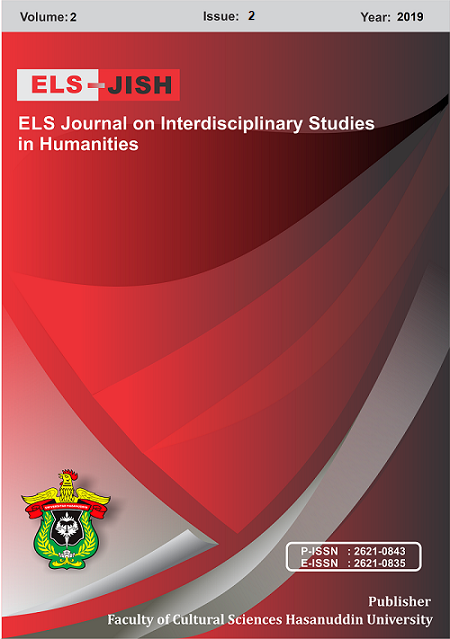Geographic Innovation of Bugis Language and Makassar Language (Indonesian Geographic Variation)
DOI:
https://doi.org/10.34050/els-jish.v2i2.6318Keywords:
variation, geographyAbstract
This paper aims to describe the geographical variation of the Makassar language and the Bugis language. Language variations are due to the geographical conditions of the speaking community. Geographical differences in society separate people into groups consisting of ethnic groups. The diversity of ethnic groups has resulted in cultural differences including language and variations. Social factors, time factors, and individual language users give rise to variations in language. This research method uses descriptive qualitative, data collection is done by referring to the method of free involvement, recording, and recording. Data obtained through referral methods, recording techniques, and notes are then analyzed by classifying and grouping. In grouping steps are used, namely 1) Data Identification, 2) Data Classification, 3) Data Analysis. The results of this study found that there were words in the Makassar language and Bugis language that experienced full lexical innovation and partial lexical innovation.






